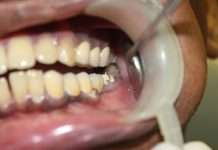Low-carb diets have been controversial for decades.
Some people assert that these diets raise cholesterol and cause heart disease due to their high fat content.
However, in most scientific studies, low-carb diets prove their worth as healthy and beneficial.
A low-carb diet not only causes more weight loss but also leads to major improvements in most risk factors for heart disease — including cholesterol.
Here are 10 proven health benefits of low-carb and ketogenic diets.
Table of Contents
1. Low-Carb Diets Reduce Your Appetite
Hunger tends to be the worst side effect of dieting.
It is one of the main reasons why many people feel miserable and eventually give up.
However, low-carb eating leads to an automatic reduction in appetite.
Studies consistently show that when people cut carbs and eat more protein and fat, they end up eating far fewer calories .
2.Low-Carb Diets Lead to More Weight Loss at First
Cutting carbs is one of the simplest and most effective ways to lose weight.
Studies illustrate that people on low-carb diets lose more weight, faster, than those on low-fat diets — even when the latter are actively restricting calories.
This is because low-carb diets act to rid excess water from your body, lowering insulin levels and leading to rapid weight loss in the first week or two .
In studies comparing low-carb and low-fat diets, people restricting their carbs sometimes lose 2–3 times as much weight — without being hungry (4, 5).
One study in obese adults found a low-carb diet particularly effective for up to six months, compared to a conventional weight loss diet. After that, the difference in weight loss between diets was insignificant
In a year-long study in 609 overweight adults on low-fat or low-carb diets, both groups lost similar amounts of weight
3. A Greater Proportion of Fat Loss Comes From Your Abdominal Cavity
Not all fat in your body is the same.
Where fat is stored determines how it affects your health and risk of disease.
The two main types are subcutaneous fat, which is under your skin, and visceral fat, which accumulates in your abdominal cavity and is typical for most overweight men.
Visceral fat tends to lodge around your organs. Excess visceral fat is associated with inflammation and insulin resistance — and may drive the metabolic dysfunction so common in the West today
Low-carb diets are very effective at reducing this harmful abdominal fat. In fact, a greater proportion of the fat people lose on low-carb diets seems to come from the abdominal cavity .
Over time, this should lead to a drastically reduced risk of heart disease and type 2 diabetes.
4. Triglycerides Tend to Drop Drastically
Triglycerides are fat molecules that circulate in your bloodstream.
It is well known that high fasting triglycerides — levels in the blood after an overnight fast — are a strong heart disease risk factor .
One of the main drivers of elevated triglycerides in sedentary people is carb consumption — especially the simple sugar fructose .
When people cut carbs, they tend to experience a very dramatic reduction in blood triglycerides .
On the other hand, low-fat diets often cause triglycerides to increase .
5. Increased Levels of ‘Good’ HDL Cholesterol
.High-density lipoprotein (HDL) is often called the “good” cholesterol.
The higher your levels of HDL relative to “bad” LDL, the lower your risk of heart disease.
One of the best ways to increase “good” HDL levels is to eat fat — and low-carb diets include a lot of fat
Therefore, it is unsurprising that HDL levels increase dramatically on healthy, low-carb diets, while they tend to increase only moderately or even decline on low-fat diets.



















